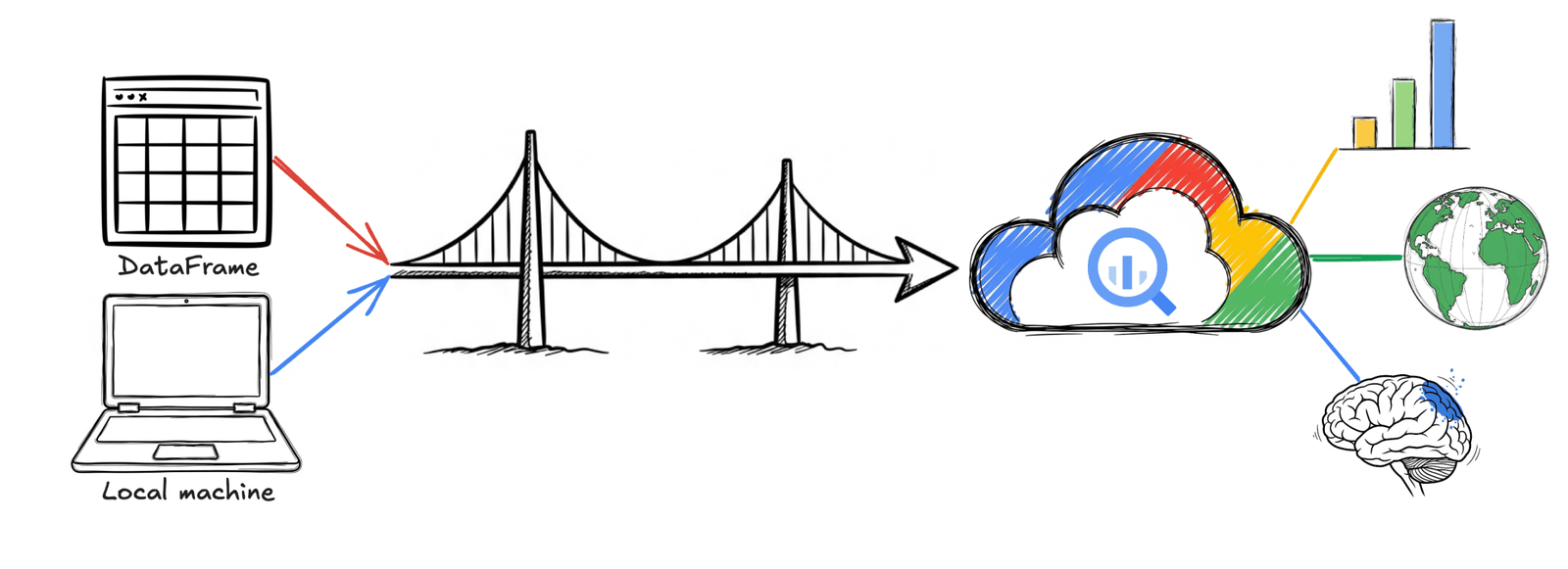AI in Travel
Bangladesh’s TripBooking.AI Launches Revolutionary AI Travel Assistant – A Game-Changer for Local and Global Travelers

Monday, July 21, 2025
In the heart of Dhaka’s busy Banani area, a group of Bangladeshi entrepreneurs are doing something that could change the way millions of people book their travel — though you have probably never heard of their company. TripBooking. AI, the first ever AI travel assistant of Bangladesh, was officially presented on the 20th of July in 2025, aiming to resolve the issue of travel planning in the country. The product — an AI assistant named Zoe that aims to remove the hassle of arranging trips — offers a smart, user-friendly solution that could soon leave old-fashioned agencies by the wayside.
The path that brought the founders here is an inspiring one. The idea behind TtripBooking was ignited by Visonary entrepruner Prottoy Sen with 15 years experience in world’s tech giant HP & Ericsson. AI in 2024. Even then, success didn’t distract him from his passion for his motherland—Bangladesh. The frustration of trying to book a trip home, which involved hours on the phone with travel agents and scouring Facebook groups, along with a constant flow of WhatsApp messages, is what propelled him to create something.
Prottoy found the perfect partners in Dipto Datta and Ahmed Ajmine, fresh Computer Science graduates from North South University, who shared his dream of modernizing Bangladesh’s travel industry. Together, they spent months in 2025 designing and developing TripBooking.AI, a platform that uses artificial intelligence to simplify the process of trip planning, making it as simple as having a conversation with an assistant.
Zoe: The Future of Travel Planning
TripBooking.AI’s flagship product, Zoe, is an AI-powered assistant with a sleek and intuitive interface, designed to make travel planning as simple as chatting on your phone. Zoe allows users to ask questions about destinations, dates, and budget constraints, and responds with curated travel packages from trusted partners at unbeatable prices. This innovation is poised to eliminate the need for time-consuming phone calls, Facebook searches, and the hassle of manually booking each piece of a trip.
What sets TripBooking.AI apart from international travel apps is its deep understanding of local needs and preferences. Zoe was designed to cater to the unique behaviors and demands of Bangladeshi travelers, making it an invaluable tool for both domestic and international trips. The platform’s current offerings include carefully curated tour packages, with plans to expand into hotel and flight bookings in the near future.
For a country where many people still rely on traditional methods of planning travel, TripBooking.AI offers an accessible, high-tech alternative that is set to change how Bangladesh travels. The platform has already garnered attention from international entities, including Amazon’s AWS Activate program, which provides TripBooking.AI with credits for over 200 AWS services. Additionally, the company has been selected for Silicon Valley’s Founders Institute Core Programme, a prestigious global accelerator that has helped over 7,800 entrepreneurs raise over $1.85 billion in funding.
An Inspiring Story of Entrepreneurship and Innovation
The founding of TripBooking. AI is not just a technology story — it’s also one of resilience and entrepreneurship. Prottoy Sen’s path — from his early days at Notre Dame College to his time at MIT Bootcamp — is a testament to the combination of international expertise and local appetite. His time at tech giants worldwide influenced his vision for TripBooking. AI, and the notion that entrepreneurship could solve local problems that led him to build what is now Bangladesh’s first AI-based travel assistant.
His co-founders, Dipto and Ahmed, bring their own expertise to the table. As fresh graduates in Computer Science, they were instrumental in leading the AI innovation and technical development behind Zoe. The trio’s combined efforts have resulted in a product that is not only technologically advanced but also perfectly suited to the local context of Bangladesh.
Their passion for transforming the travel industry extends far beyond Bangladesh. The founders are already setting their sights on international expansion, hoping to make TripBooking.AI a global movement. In a country that has long faced resource constraints, they aim to prove that entrepreneurship is not just a luxury but a necessity for solving local problems.
A Future of Seamless Travel Planning
As TripBooking.AI officially launches, it is clear that the platform represents a bright future for travel planning in Bangladesh and beyond. Zoe is not just an assistant; she’s the embodiment of a new era in travel—one where the power of AI is used to simplify complex tasks and enhance everyday experiences. Whether a traveler is booking a weekend getaway to Cox’s Bazar or planning a honeymoon in Bali, Zoe will be there to handle the details.
The team behind TripBooking.AI has already inspired a new generation of Bangladeshi entrepreneurs, showing that even in a resource-constrained environment, innovation is possible. Their vision for the future of travel is one where every traveler, anywhere in the world, can plan and book their dream trip with nothing more than a conversation with an intelligent assistant.
TripBooking.AI is tapping into a country where the travel industry is largely offline, with antiquated booking methods. AI provides a new, high-tech answer that will change the way Bangladesh—and the world —plans its trips. With an emphasis on both domestic and international travel, this AI-powered assistant isn’t just a tool but a testament of what’s achievable when global knowledge meets local zeal.
As it continues to gain momentum, TripBooking. AI is expected to overturn the world’s travel industry Featured as the lead theme of the global travel revolution, it is evidence that local innovation backed by global experience can accomplish amazing things.” The way you travel is going to change now with TripBooking. AI.
AI in Travel
Yandex Türkiye launches AI-powered finance and travel tools, eyes expansion in mobility sector

Photo shows Yandex Türkiye website on the display of a computer, accessed on July 22, 2025. (Adobe Stock Photo)
July 23, 2025 12:06 AM GMT+03:00
Yandex Türkiye unveiled a series of summer updates Friday, introducing new artificial intelligence-driven tools for finance, travel planning, and search functionality, as part of efforts to broaden its digital services and strengthen its presence in Türkiye’s growing tech and mobility markets.
The new offerings, branded Yandex Travel and Yandex Finance, aim to help users plan vacations and business trips more efficiently while providing real-time financial data. These features are integrated into Yandex’s search engine Yazeka and its answer platform Yandex Cevap, which now includes a “Reasoning Mode” to deliver deeper, more structured responses using wider information sources.
Yandex Türkiye CEO and Yandex Search International Chief Executive Alexander Popovskiy emphasized the company’s ambitions to expand in Türkiye’s ride-hailing sector, which he said remains underserved and heavily regulated.
Turkish market ‘significantly underserved’
“We have always been saying that the Turkish market is significantly underserved in terms of ride-hailing, in terms of taxi services,” Popovskiy told Turkish news agency Anadolu. “The current regulation is very strict. Supply is very limited. It is sensible in such cities like Istanbul.”
Popovskiy estimated that Istanbul’s ride-hailing market could support up to ten times more taxis than currently operate and suggested the sector’s financial value could grow fivefold if liberalized. He stressed that liberalization would benefit users, drivers, fleet owners, and platforms alike.
Rear view of a woman sitting at a computer with the Yandex logo on the monitor in Novosibirsk, Russia on September 16, 2020. (Adobe Stock Photo)
As a preparatory step, Yandex is gaining experience in cities such as Ankara, Izmir, and Antalya before fully entering Istanbul’s competitive market. Yandex Go recently received an electronic service license from Istanbul Metropolitan Municipality, a key milestone toward expanding in the city.
In travel, Yandex Travel allows users to compare hotel and flight prices across multiple partners, with plans to add other transportation options like buses. Popovskiy said the company aims to integrate artificial intelligence more deeply to transform travel planning into an interactive, chat-like experience.
AI-powered access to currency exchange rates
Yandex Finance Türkiye provides users with AI-powered access to currency exchange rates, stock prices, cryptocurrency updates, and economic news. Popovskiy said it offers a more comprehensive experience than similar services elsewhere and is working toward integration with Yazeka to potentially deliver personalized financial recommendations.
Yazeka, Yandex’s answer engine, now handles nearly one in four search queries in Türkiye. Its latest feature, Reasoning Mode, enables users to request more detailed answers by drawing from a wider range of verified sources.
“With internet search, you should always remember the balance between quality and speed,” Popovskiy said. “If you want a more comprehensive answer, you just click one button. And then Yazeka starts thinking more deeply about your request.”
Popovskiy also hinted at future plans for Yazeka to become a standalone application, possibly with its own unique personality.
The 2025 updates mark a significant push by Yandex to expand its footprint across Türkiye’s mobility, travel, finance, and AI sectors.
AI in Travel
8 Ways to Scale your Data Science Workloads
Sponsored Content


How much time do you spend fighting your tools instead of solving problems? Every data scientist has been there: downsampling a dataset because it won’t fit into memory or hacking together a way to let a business user interact with a machine learning model.
The ideal environment gets out of the way so you can focus on the analysis. This article covers eight practical methods in BigQuery designed to do exactly that, from using AI-powered agents to serving ML models straight from a spreadsheet.
1. Machine Learning in your Spreadsheets


BQML training and prediction from a Google Sheet
Many data conversations start and end in a spreadsheet. They’re familiar, easy to use, and great for collaboration. But what happens when your data is too big for a spreadsheet, or when you want to run a prediction without writing a bunch of code? Connected Sheets helps by letting you analyze billions of rows of BigQuery data from the Google Sheets interface. All calculations, charts, and pivot tables are powered by BigQuery behind the scenes.
Taking it a step further, you can also access models you’ve built with BigQuery Machine Learning (BQML). Imagine you have a BQML model that predicts housing prices. With Connected Sheets, a business user could open a Sheet, enter data for a new property (square footage, number of bedrooms, location), and a formula can call a BQML model to return a price estimate. No Python or API wrangling needed – just a Sheets formula calling a model. It’s a powerful way to expose machine learning to non-technical teams.
2. No Cost BigQuery Sandbox and Colab Notebooks
Getting started with enterprise data warehouses often involves friction, like setting up a billing account. The BigQuery Sandbox removes that barrier, letting you query up to 1 terabyte of data per month. No credit card required. It’s a great, no-cost way to start learning and experimenting with large-scale analytics.
As a data scientist, you can access your BigQuery Sandbox from a Colab notebook. With just a few lines of authentication code, you can run SQL queries right from a notebook and pull the results into a Python DataFrame for analysis. That same notebook environment can even act as an AI partner to help plan your analysis and write code.
3. Your AI-Powered Partner in Colab Notebooks


Data Science Agent in a Colab Notebook (sequences shortened, results for illustrative purposes)
Colab notebooks are now an AI-first experience designed to speed up your workflow. You can generate code from natural language, get automatic error explanations, and chat with an assistant right alongside your code.
Colab notebooks also have a built-in Data Science Agent. Think of it as an ML expert you can collaborate with. Start with a dataset – like a local CSV or a BigQuery table – and a high level goal, like “build a model to predict customer churn”. The agent creates a plan with suggested steps (e.g. data cleaning, feature engineering, model training) and writes the code.
And you are always in control. The agent generates code directly in notebook cells, but doesn’t run anything on its own. You can review and edit each cell before deciding what to execute, or even ask the agent to rethink its approach and try different techniques.
4. Scale your Pandas Workflows with BigQuery DataFrames
Many data scientists live in notebooks and use pandas DataFrames for data manipulation. But there’s a well-known limit: all the data you process needs to fit into your machine’s memory. MemoryError exceptions are all too common, forcing you to downsample your data early on.
This is the exact problem BigQuery DataFrames solves. It provides a Python API intentionally similar to pandas. Instead of running locally, it translates your commands into SQL and executes them on the BigQuery engine. Meaning you can work with terabyte-scale datasets from your notebook, with a familiar API, and no worries about memory constraints. The same concept applies to model training, with a scikit-learn-like API that pushes model training to BigQuery ML.
5. Spark ML in BigQuery Studio Notebooks


Sample Spark ML notebook in BigQuery Studio
Apache Spark is a useful tool from feature engineering to model training, but managing the infrastructure has always been a challenge. Serverless for Apache Spark lets you run Spark code, including jobs using libraries like XGBoost, PyTorch, and Transformers, without having to provision a cluster. You can develop interactively from a notebook directly within BigQuery, letting you focus on model development, while BigQuery handles the infrastructure.
You can use Serverless Spark to operate on the same data (and the same governance model) in your BigQuery warehouse.
6. Add External Context with Public Datasets


Top 5 trending terms in the Los Angeles Area in early July 2025
Your first-party data tells you what happened, but can’t always explain why. To find that context, you can join your data with a large collection of public datasets available in BigQuery.
Imagine you’re a data scientist for a retail brand. You see a spike in sales for a raincoat in the Pacific Northwest. Was it your recent marketing campaign, or something else? By joining your sales data with the Google Trends dataset in BigQuery, you can quickly see if search queries for “waterproof jacket” also surged in the same region and period.
Or let’s say you’re planning a new store. You can use the Places Insights dataset to analyze traffic patterns and business density in potential neighborhoods, layering it on top of your customer information to choose the best location. These public datasets let you build richer models that account for real-world factors.
7. Geospatial Analytics at Scale


BigQuery Geo Viz map of a hurricane, using color to indicate radius and wind speed
Building location-aware features for a model can be complex, but BigQuery simplifies this by supporting a GEOGRAPHY data type and standard GIS functions within SQL. This lets you engineer spatial features right at the source. For example, if you are building a model to predict real estate prices, you could use a function like ST_DWithin to calculate the number of public transit stops within a one mile radius for each property. You can then use that value directly as input to your model.
You can take this further with Google Earth Engine integration, which brings petabytes of satellite imagery and environmental data into BigQuery. For that same real estate model, you could query Earth Engine’s data to add features like historical flood risk or even density of tree cover. This helps you build much richer models by augmenting your business data with planet-scale environmental information.
8. Make Sense of Log Data
Most people think of BigQuery for analytical data, but it’s also a powerful destination for operational data. You can route all of your Cloud Logging data to BigQuery, turning unstructured text logs into queryable resources. This allows you to run SQL across logs from all your services to diagnose issues, track performance, or analyze security events.
For a data scientist, this Cloud Logging data is a rich source to build predictions from. Imagine investigating a drop in user activity. After identifying an error message in the logs, you can use BigQuery Vector Search to find semantically similar logs, even if they don’t contain the exact same text. This could help reveal related issues, like “user token invalid” and “authentication failed”, that are part of the same root cause. You could then use this labeled data to train an anomaly detection model that flags patterns proactively.
Conclusion
Hopefully, these examples spark some new ideas for your next project. From scaling pandas DataFrames to feature engineering with geography data, the goal is to help you work at scale with familiar tools.
Ready to give one a shot? You can start exploring at no cost today in the BigQuery Sandbox!
Author: Jeff Nelson, Developer Relations Engineer
AI in Travel
Rezcomm Maps the Future of AI in Travel

New animation brings Rezcomm’s AI roadmap to life, showing how airports and travel hubs can use automation, analytics, and frictionless access to transform operations and elevate the customer experience.
Rezcomm has launched a new animated video showcasing its advanced AI capabilities and vision for the future of travel. The video, titled “Rezcomm AI: Smarter Journeys, Seamless Experiences,” brings to life how predictive automation, dynamic pricing, and barrier-free access can help airports and travel hubs deliver frictionless customer experiences and maximize revenue.
As creators of the plug-and-play marketplace trusted by airports, venues, and travel hubs globally, Rezcomm continues to lead in AI-powered innovation.
The launch builds on Rezcomm’s story, “Advanced AI and Analytics Set to Change the Future of Aviation,” which introduced the industry to Rezcomm’s generative AI chatbot, sentiment analytics, and privacy-first personalization. This release demonstrates how those capabilities have matured into a cohesive intelligence layer that not only anticipates demand but will soon act autonomously.
Watch the animation:
Key Highlights
- Predictive intelligence: AI models forecast demand and recommend actions in real time.
- Operational efficiency: Dynamic pricing, capacity management, and automated communications – all fully integrated.
- Frictionless access: Barrier-free entry through AI-enabled cameras, QR codes, and smart rules.
- Built for scale: Secure, cloud-based infrastructure designed for high-volume environments.
Leadership Commentary
Marc Ive, Chief Executive Officer, Rezcomm
“We promised AI and analytics would reshape aviation – this shows that reality taking shape. AI should remain invisible to travelers but deliver real impact for operators: higher revenue, fewer headaches, better experiences.”
Victoria Wallace, Chief Digital Officer, Rezcomm
“The next shift in digital isn’t more tools – it’s smarter coordination. AI allows us to unify fragmented systems, act on data instantly, and drive meaningful change in how guests experience travel. It’s about being responsive, predictive, and future-ready – all at once.”
Alwyn J Veliyeth, Chief Technology Officer, Rezcomm
“We’ve embedded AI across every service. The result is a secure, cohesive architecture that monitors 24/7, predicts what’s next, and will soon act autonomously – without adding complexity or risk.”
About Rezcomm
Your customers expect joined-up services. With Rezcomm Marketplace, your platform delivers exactly that – seamless, personalized experiences across digital and physical touchpoints.
Originally built for airports, Rezcomm now powers travel hubs of all kinds. Our modular, AI-driven platform combines ecommerce, CRM, reservations, BI, and marketing. By giving organizations full data ownership and rich predictive analytics, Rezcomm helps them personalize every interaction, automate operations, and unlock new revenue at scale.
Rezcomm supports clients globally and holds industry-leading certifications, including PCI DSS Level 1 Version 4.0 and Cyber Essentials Plus. Learn more at rezcomm.com.
-

 Brand Stories2 days ago
Brand Stories2 days agoBloom Hotels: A Modern Vision of Hospitality Redefining Travel
-

 Brand Stories15 hours ago
Brand Stories15 hours agoOlive Living: India’s Intelligent, Community-Centric Hospitality Powerhouse
-

 Destinations & Things To Do2 days ago
Destinations & Things To Do2 days agoUntouched Destinations: Stunning Hidden Gems You Must Visit
-

 AI in Travel2 days ago
AI in Travel2 days agoAI Travel Revolution: Must-Have Guide to the Best Experience
-

 Brand Stories3 weeks ago
Brand Stories3 weeks agoVoice AI Startup ElevenLabs Plans to Add Hubs Around the World
-

 Brand Stories2 weeks ago
Brand Stories2 weeks agoHow Elon Musk’s rogue Grok chatbot became a cautionary AI tale
-

 Asia Travel Pulse3 weeks ago
Asia Travel Pulse3 weeks agoLooking For Adventure In Asia? Here Are 7 Epic Destinations You Need To Experience At Least Once – Zee News
-

 AI in Travel3 weeks ago
AI in Travel3 weeks ago‘Will AI take my job?’ A trip to a Beijing fortune-telling bar to see what lies ahead | China
-

 Brand Stories3 weeks ago
Brand Stories3 weeks agoChatGPT — the last of the great romantics
-

 The Travel Revolution of Our Era1 month ago
The Travel Revolution of Our Era1 month agoCheQin.ai Redefines Hotel Booking with Zero-Commission Model













You must be logged in to post a comment Login